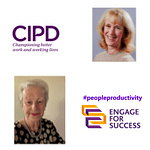To make a lasting workplace impact in the competitive world, one needs to have an open mindset, giving employees empowerment and ownership to have a sense of belongingness with the organisation. One has to be proactive and create a different work environment that helps the employee develop their key skills and be creative and innovative. Professional employers can create a positive work environment that has a lasting workplace impact.
Conventional strategies toward the workplace have their advantages, but unconventional methods can give more remarkable results than the conventional strategies followed by most organisations for their employees. Unconventional strategies are more innovative and give better results as these are employee engagement strategies that improve the productivity and morale of employees.
Below are some unconventional strategies for making a lasting workplace impact to enhance productivity.
Encouraging Autonomy, Empowerment, and Ownership
Giving employees the authority to make decision-making in their area of expertise. This way they can improve productivity by better employee engagement. Instead of micromanaging, empower employees to take ownership of their work and make decisions independently. Independent decision-making makes them more responsible. Giving them the necessary resources and support for independent decision-making. Employees should have the freedom to experiment and learn from their experiences. This makes them feel more valuable in the workplace. Employee empowerment gives a sense of responsibility and enforces creativity to employees. Employees take more initiative to perform better at work.
Reverse Mentoring
The traditional mentoring process is a senior-level to junior-level process. This approach may be reversed and junior-level employees can be assigned as mentors to senior or mid-level employees. This can be cross-departmental or within the same department, where specific tasks are being done at the junior level and the employee can share his experience with the senior level. Reverse mentoring will help in team building, building trust, sharing corporate knowledge, and helping various groups understand the different perspectives of day-to-day tasks.
Allocating Personal Development Budget
Employees may be assigned a personal budget at the start of every year. This kind of arrangement will give the individual some scope to pursue personal development activities including external training or acquiring a new set of skills. This will encourage employees to pursue their interests and develop new skills by providing access to training programs and other mentorship opportunities. This helps individuals stay engaged, motivated at work, and adaptable to the ever-changing work environment.
Encouraging Side Projects
Allowing employees to pursue side projects related to their interests or skills can lead to surprising benefits. These projects not only stimulate creativity and passion but also provide opportunities for cross-functional learning. Google’s famous ‘20% time‘ policy, where employees are encouraged to spend a portion of their workweek on personal projects, has resulted in some of their most innovative products.
Embracing Vulnerability
Traditionally, vulnerability is seen as a weakness in the workplace. However, recent studies have shown that embracing vulnerability can lead to increased trust, collaboration, and innovation. When leaders and team members open up about their challenges and fears, it creates an environment of authenticity. This fosters a culture where everyone feels comfortable taking risks and sharing ideas, ultimately leading to greater creativity and problem-solving.
Peer-To-Peer Recognition
The platform may be devised, where employees can frequently recognise their colleagues’ efforts and accomplishments. When such performers are recognised at the organisational level, they can be complemented with financial or non-financial incentives. This kind of employee recognition strategy helps in building mutual trust and belongingness within peer groups.
PRioritising frequent Breaks and Relaxation
Constantly working on projects makes a person monotonous. Often this leads to a decline in employee performance instead of boosting it. Between work, employees need to have breaks to boost and improve workplace productivity. It is a great way to eliminate constant stress and fatigue from work. Employees can perform better and be more creative and innovative at work. This routine makes employees more relaxed and happy at their workplace.
Promoting Radical Transparency
Transparency is a buzzword in modern workplaces, but taking it a step further with radical transparency can yield remarkable results. This means openly sharing information about company performance, decision-making processes, and even salary structures. When employees feel they are trusted with crucial information, they tend to have a deeper sense of ownership and commitment toward the organisation.
Anonymising Surveys
With the advent of technology, there are various survey platforms, which provide the option to develop surveys form. Such survey platforms can be used to develop surveys to gather feedback from employees. Such feedback systems should be anonymous, to ensure honest feedback. Such employee surveys can be done on a frequent basis and may include questionnaires, which can be helpful for policymaking, decision-making, or for arranging other kinds of feedback from individuals. This process will be helpful in employee engagement and measuring employee belongingness.
Fostering a Culture of Gratitude
Gratitude is a powerful tool for creating a positive work environment. Encourage a culture of expressing appreciation not only for achievements but also for efforts and small gestures. This can be done through regular team recognitions, handwritten notes, or a dedicated platform for sharing kudos.
Conclusion
To make a lasting workplace impact and better employee engagement in their workplace is to give employees an environment that boosts their creativity, and productivity. Providing a workplace with positive insight and empowering employees make employees happier and more innovative. Above are some unconventional strategies for making a lasting workplace impact and enhancing productivity. The above points focus on giving opportunities for employee learning, promoting employee mental health, and employee inclusion in decision-making. Giving employees rest and a break from work rejuvenates their skills and productivity.
Photo credit: Liza Summer




